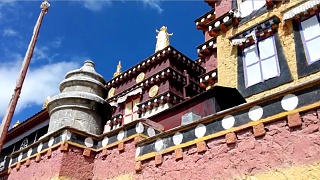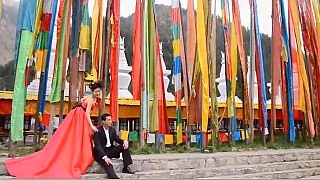
|
With Our Travel Journal ...
ZhuJiaJiao Ancient Water Town Travel Guide
History
Attractions
Activities
Food
Transportation
Tips
History of ZhuJiaJiao
ZhuJiaJiao, often referred to as the "Venice of Shanghai," is an ancient water town located about 47 kilometers from the bustling center of Shanghai. With a history spanning over 1,700 years, this charming town is known for its picturesque canals, traditional Chinese architecture, and tranquil atmosphere. It was established during the Three Kingdoms Period and flourished during the Ming and Qing Dynasties as a vital trading hub.
Top Attractions in ZhuJiaJiao
1. Fangsheng Bridge
The Fangsheng Bridge, built in 1571, is one of the most iconic landmarks in ZhuJiaJiao. It is the longest, largest, and tallest stone bridge in the town, offering stunning views of the water town's canals and ancient buildings.
2. Kezhi Garden
This classical Chinese garden features intricate rockeries, tranquil ponds, and traditional pavilions. Originally built in 1912, Kezhi Garden showcases the beauty of Chinese landscaping and architecture.
3. Qing Dynasty Post Office
Dating back to the Qing Dynasty, this ancient post office is the oldest in eastern China. It provides a fascinating glimpse into the postal history of China and houses a collection of old letters and postcards.
4. Great North Street
Great North Street is the main commercial street of ZhuJiaJiao, lined with quaint shops, tea houses, and traditional residences. It's a great place to shop for souvenirs, local crafts, and taste delicious street food.
Activities to Enjoy
1. Boat Rides
Take a traditional wooden boat ride through the canals of ZhuJiaJiao for a unique perspective of the town's historic architecture and scenic views. The boat rides are a relaxing way to explore the waterways.
2. Walking Tours
Stroll along the ancient streets and alleys, explore hidden courtyards, and admire the well-preserved ancient architecture. Walking tours are the best way to immerse yourself in the charm of ZhuJiaJiao.
3. Tea Tasting
Visit one of the many tea houses along the canals to experience traditional Chinese tea culture. Enjoy a cup of freshly brewed tea while overlooking the serene waterways.
Local Food & Delicacies
1. Zongzi (Rice Dumplings)
ZhuJiaJiao is famous for its zongzi, a traditional Chinese food made of glutinous rice wrapped in bamboo leaves, typically filled with red bean paste or meat.
2. Steamed Pork Dumplings
These delicious dumplings are a must-try in ZhuJiaJiao. They are steamed to perfection and filled with savory pork and a touch of soup.
3. Lotus Root Snacks
A local delicacy, these crunchy lotus root snacks are sweet, sticky, and coated with honey. They make for a perfect snack while exploring the town.
How to Get There
By Bus
Take the Huzhu Express Line from Shanghai Stadium, which takes about 1 hour to reach ZhuJiaJiao. Buses run frequently throughout the day.
By Car
ZhuJiaJiao is approximately a 1-hour drive from downtown Shanghai. You can either hire a private car or take a taxi for a more comfortable journey.
By Metro
Take Line 17 of the Shanghai Metro and get off at ZhuJiaJiao Station. From the station, it's a short taxi ride or a 20-minute walk to the water town.
Travel Tips for ZhuJiaJiao
Visit early in the morning or on weekdays to avoid the crowds and enjoy a more peaceful experience.
Wear comfortable walking shoes as you'll be exploring on foot and navigating cobblestone streets.
Bring cash, as many of the smaller shops and food stalls may not accept credit cards.
Don't forget your camera to capture the picturesque views of canals, bridges, and ancient architecture.
|
 Hong Kong 香港 sunset time-lapse
Hong Kong 香港 sunset time-lapse





